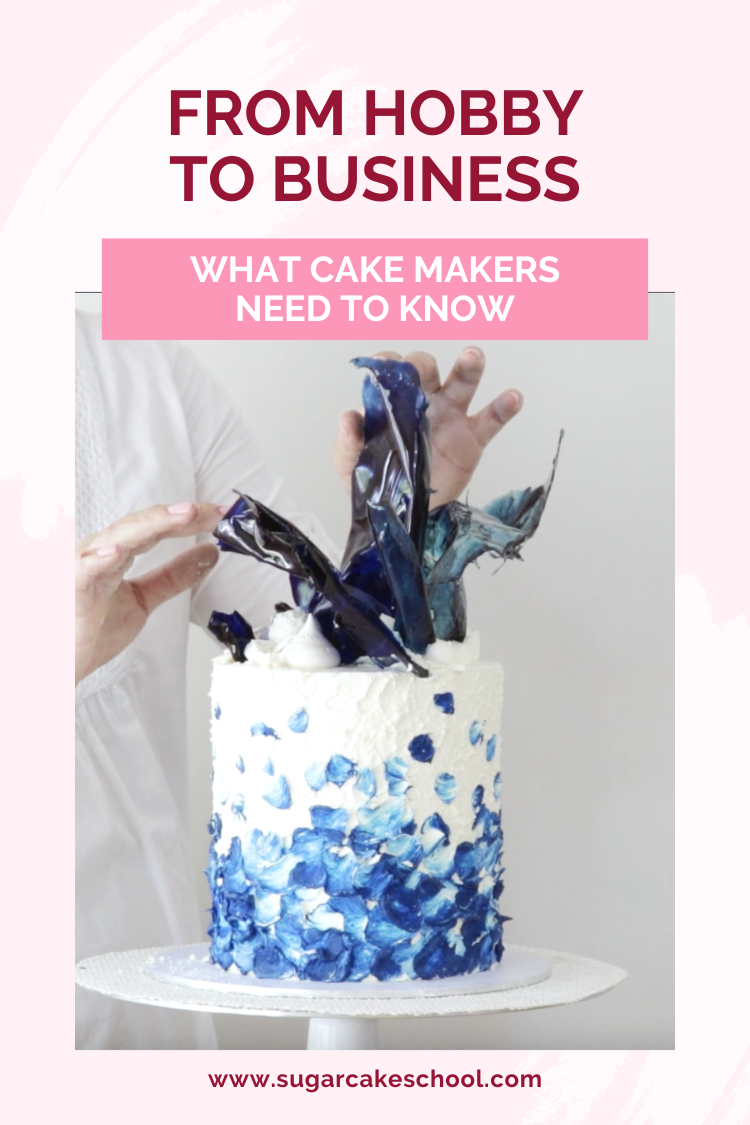
I remember when I first started decorating cakes… As with most of you reading this, I “fell” into it totally by accident. I was at home, recovering from 3 months in hospital (you can read more about that backstory here) unable to work in my usual job as a pastry chef.
The first few months into this “new world” was a flurry of Youtube videos, enthusiastically trialing different recipes, occasionally throwing out entire batches of failed mixes, and spending hours perfecting a single gumpaste flower.
Fast forward 6 months in and my little hobby had become a full-fledged business, complete with shiny business cards and a semi-functioning website. But then things started to change, cake decorating shifted into something that I did during work hours instead of on weekends. The volume of work and list of to-dos started to grow. I found myself scratching my head about how things have changed so quickly.
Did I still LIKE cake decorating? Was this still for me?
After some back and forth about my career, wondering whether I’d be happier in an office job (I did try that for 2 months and let’s just say, it didn’t work out. My personality couldn’t handle the mundanity of it and my lack of passion resulted in me politely being made redundant).
After lots of seesawing, I finally realised…YES I did still in fact, like cake decorating… and I definitely had the desire to turn this into my career, be my own boss and create a business that would support myself and my future family..
BUT…
My approach and expectations needed to change.
Cake decorating as a HOBBY is vastly different to cake decorating as a JOB and I needed to have a shift in my mindset and methods in order for this to work.
I realised I was feeling disjointed because the “transition” from hobby to business had happened so organically and fluidly. I was feeling misaligned because I was treating cake decorating like a hobby when in fact, it had become my career.
So… what’s the main differences and what’s the best way to approach each one to set yourself up for success and longevity? Here are 3 main factors to pay attention to:
#1 The Time Factor
As a hobbyist baker, creating edible decorations is something you do to release stress and to take your mind off your everyday routine. Therefore, you can afford to take things slow, start and stop projects as you wish and not have to keep track of how long each step takes.
However, when you operate as a business, your goal is to get as much done as you can in the least amount of time. The longer you spend on a certain task or cake order, the more your labour costs increase. Similarly, the faster you’re able to bake and decorate means that you’re able to take on more orders. Which equates to more dollars in the bank.
So if you are a hobbyist baker, time isn’t really something you need to manage or measure; however as a cake business, you have to make smart choices in order to make your workflow become more time-efficient.
Some examples include:
- Batch working so that you’re doing similar tasks all at the same time (e.g. one day for admin, one day for baking etc)
- Niching down to a narrower product list or style so you become highly efficient in producing those few products or particular style
- Saying ‘No’ to an opportunity if is outside of your capability or availability so you’re not overextending yourself
- Having a few “base” recipes and finding ways to adapt those recipes to multiple flavour options so you’re able to batch bake (you can find my favourite base recipes in my free Cake Decorating bundle here).
- Outsourcing and delegating tasks (e.g. ordering pre-baked cakes from a local baker, advertising for a trainee, getting a virtual assistant to answer enquiries, getting a cleaner once a week or getting your ingredients delivered etc.).
Just like in any other industry, managers are constantly finding ways to make things run smoother, quicker and more efficiently. In the case of running our own cake business, WE are the ones who need to initiate the systems and methods to efficient caking.

#2 The Money Factor
Here’s a well-known fact, new hobby bakers tend to spend copious amounts of money on new cake tools and toys, relying on other sources of income to fund these purchases. Additionally in this realm, the purpose of decorating and baking isn’t to make money, it’s purely as an outlet to create and play.
Whilst decorating and baking as a business never loses its creative element, one big change is the newfound need for profit generation. A cake business that doesn’t generate profits in the long term, will unfortunately not survive. As extreme as it may sound, money is oxygen to any business. So whilst MONEY isn’t the be all and end all, we do have to make sound business decisions to position ourselves towards making a healthy, sustainable income from this thing that we love to do.
It’s time to put our business hats on people!
Some examples of ways to increase our profits margins include:
- Finding ways to reduce our ingredients cost: buying at wholesale prices, finding good-quality but cheaper options, using discount codes whenever possible
- Making do with a few good quality cake tools that can be used in multiple ways.
- Invest in your skills to improve the quality, taste and finish on our cakes so they look more professional and we are able to charge more (I teach this inside of my cake membership The Cake Insider Academy).
- Either increasing the volume of products we can make each week (making and selling products that are more scalable) or increasing the margin of single, customised products (targeting high-end clients).

#3 The Boundary Factor
Let’s talk boundaries. When you begin to shift your cake decorating from a hobby into a cake business, you need to start putting boundaries into place. Now as I type this, I cringe slightly as I am not quite where I need to be on this subject #guilty.
I find being disciplined to put in boundaries around my work REALLY HARD because I so love my job. But I also know from experience of 10 years in the baking industry that cake decorating is a marathon, not a sprint.
Here’s the thing. No boundaries equals to burnout. If you want to read more about avoiding or overcoming burnout, I wrote another blog post about it. Burnout is so dangerous as it takes a thing that we love so much (aka cake decorating) and sucks all the life out of it. So sometimes you’ll hear of bakers hanging up their aprons and quitting their craft not because they don’t love it anymore, but because they didn’t protect themselves from burnout. To this day, I still bump into cake decorators at baking expos who “quit baking” (due to burnout) but somehow still can’t pull themselves away from the cake world because intrinsically, deep down, they still love it.
So what sort of boundaries do we need to set? Here are some examples:
- Having a “clock off” time each day. A time when you say NO MORE WORK.
- Having boundaries with our phones (namely, email checking and Instagram). My goal at the moment is to totally clock off social media at 10pm. No sneaky checks or scrolling.
- Scheduling holidays and day offs in your yearly calendar. And if you don’t want to work during Christmas and new years.. Guess what? You don’t have to!
- Protecting your personal finances by opening up a separate bank account for your business. This is an important boundary to set so you’re not constantly dipping into your personal money.
- Setting up a physical boundary of your workspace. When you’re done for the day, have a place to keep your cakes safe and sound away from your “non-work-time”. Having cakes sitting on the dining table whilst you’re eating dinner will have you analysing your work and not give you the mental relief you need.
Some last thoughts…
If you find yourself having made the transition from hobbyist baker to business baker… Guess what? Here are some great things you now get to do, choose and say:
- You now get to choose a new “hobby” to do outside of your cake work for fun. For me, it’s music and reading.
- You now get to say “I have a job that I enjoy”. And as with any job on this planet, whilst you’re not going to love every single element of it (👋hello dishwashing), you know it’s giving you more fulfillment than what you were doing before.
- You now get to have full-control of what you say YES to and what you say NO to. Realise that you are the boss of your time, money and direction. You can pivot and swivel your career in any direction you want. Will it take time and hard work? Absolutely. But anything possible when you are building a cake life by design.
I hope this article has been helpful to those of you who have started, or are thinking about starting a cake business. Leaving my high-pressured work environment and stepping into creating a business from cake decorating has and is one of the best ‘happy accidents’ to happen in my life and to this day, I still wake up excited to tackle all of the new projects I’m dreaming up each day.
I’m very clear on the fact that cake decorating isn’t my hobby. It isn’t something I do “in my spare time”.
It is a career that I am passionate about, it is a job that I’m driven in and it’s creative work that challenges and pushes me to my fullest potential. It has given me opportunities and flexibility that I haven’t known was possible and I hope the same for you too.
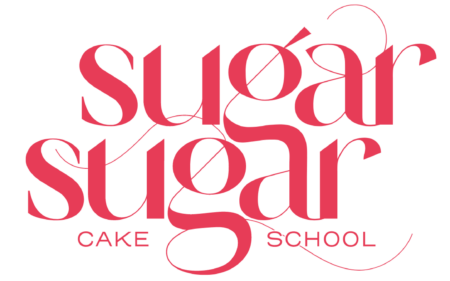
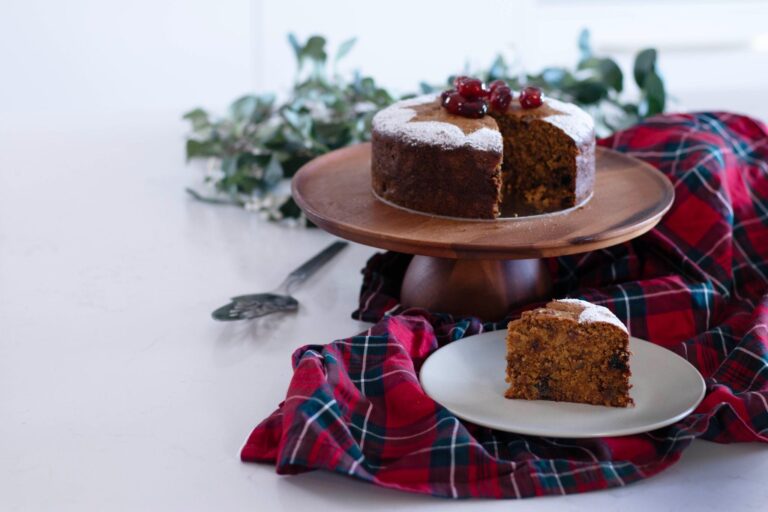
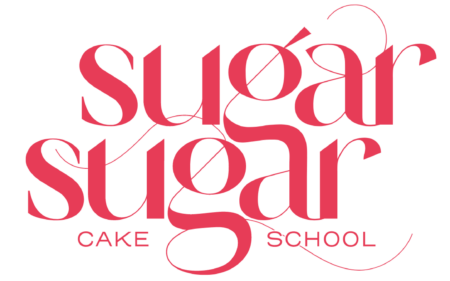


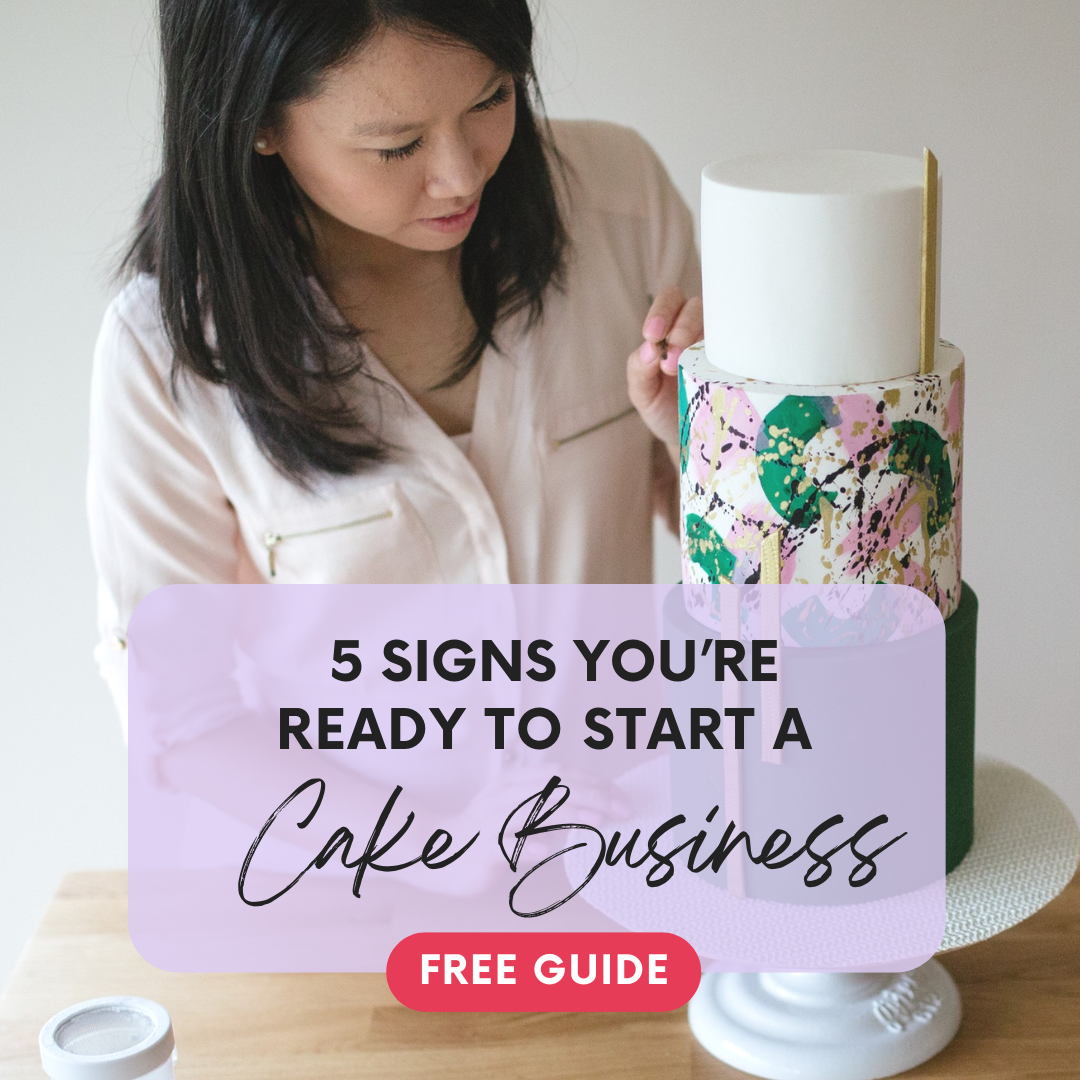
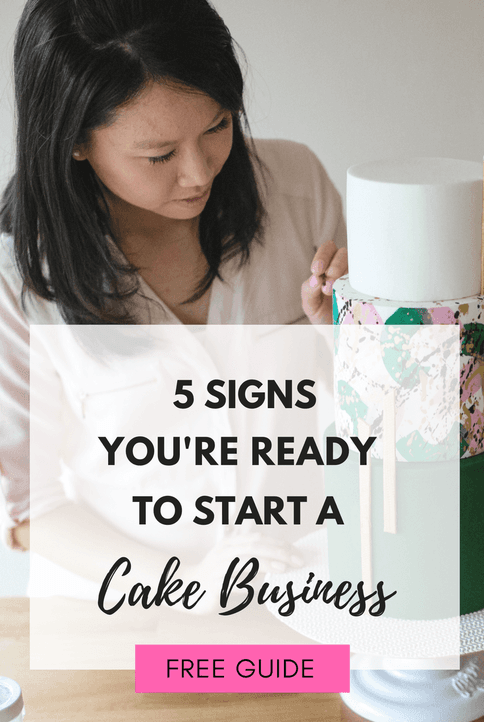
6 Responses
Thanks A lot Amanda this blog gave me a good knowledge on settling boundaries and some necessary tips to help grow your baking business, one needs to take care of his/her mental, physical and spiritual health in order to give your best in your craft.
This is a great article, I think the important thing you’ve highlighted here is not being hard on yourself outsourcing supplies – like there is no point making macarons when you only need 3-4 for a cake and can purchase good quality ones that are only for decorative purposes and so forth.
Thank you for the article…it is very insightful.
Thank you so much for sharing your experiences and ideas with cake decorating business Amanda. This each and every word you shared was really a huge inspiration for me as a person who is willing to make a hobby (baking) in to a business.
I agree with everything you said on this blog…. I wish I had known all this when I started a couple years ago. Now I’m trying to fix all those mistakes so I can turn my business into something successful without burning out my self.
Thank you for bringing the realism into this profession. I am currently going to culinary school. I am putting my toe in the water so to speak. I am sending out samples of my baking and wanted to know what to expect going forward.